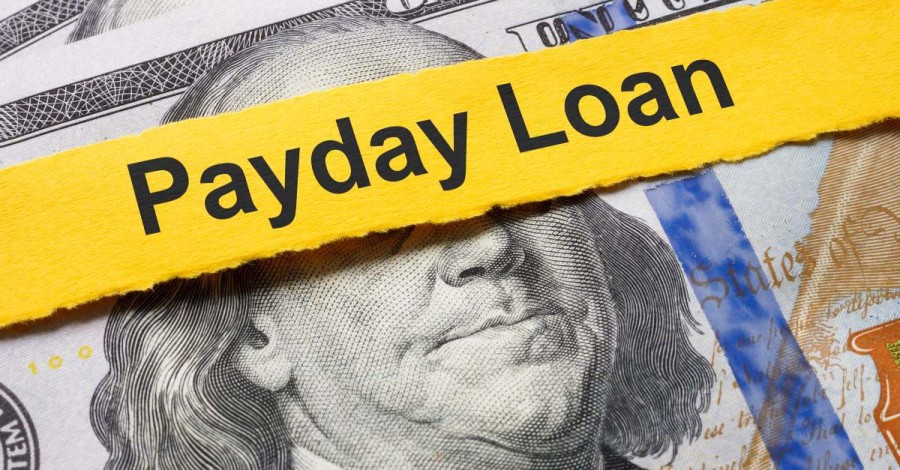Bates Research | 08-19-24
A Very Active CFPB: Paycheck Advance Loans

If you were to read how financial institutions describe the benefits of paycheck advance loans, you would think it was 15 years ago and they were describing account overdraft protection. You might read that these loans:
- Serve a much-needed purpose.
- Are what consumers want.
- Help a consumer financially.
The above might be true of an occasional paycheck advance loan, meaning a one-time occurrence to cover an emergency cost, with no intention of simply obtaining another paycheck advance to pay off the first (or worse – to add to the first). But when these loans are used to cover day-to-day expenses, and the only hope of paying off a loan is to get another, they become harmful to consumers by facilitating a cycle of debt.
Today’s Paycheck Advance Loans
Welcome to the world of the worker credit marketplace, wherein Earned Wage Access (EWA) loans are provided to workers/consumers to address the time between when a worker earns a wage and when the worker receives payment, often called the paycheck wage gap. Because that period can be a week or more, and because expenses or emergencies don’t wait, the worker has an occasional need to cover a gap. Programs have differing features, but, typically, workers can access half of their earned wages, receiving the remainder on payday. These loans are provided to consumers via employer-sponsored programs (generally repaid via payroll deductions) or via direct-to-consumer programs (generally repaid via ACH withdrawals from consumer checking accounts). Direct-to-consumer products are sometimes referred to as Cash Advance loans. Almost all of these are provided via an app from a Fintech company partnering with a financial institution. Before these new products existed, if a consumer experienced a gap, the consumer would pay the expense with a check, the check would bounce, and an overdraft would cover it, or a consumer would use a credit card. Recent scrutiny of overdrafts has resulted in banks pulling back on allowing frequent habitual overdrafts, and this has contributed to consumer’s shifting their needs to EWA loans instead, which partially explains the rapid increase in usage.
What we know about these products:
- The market for these products is expanding rapidly, and workers who use these products take out an average of 27 per year.
- Paycheck Advance Loans are relatively small – usually under $200 each time.
- APRs for these products can be over 100%.
- For employer-sponsored programs, the worker is typically locked into the product/institution the employer partnered with and isn’t able to choose a product or institution.
- Workers can pay subscription fees, fees for expedited service, and even tips.
- These products differ from traditional payday loans in that they are specifically intended to advance wages already earned, and many use a formula based on worker payroll data to compute how much the worker can borrow.
- Employer-sponsored programs tend to not pull credit reports or credit scores on employees/customers.
CFPB Interpretive Rule
The CFPB proposed an interpretive rule and provided a data spotlight report on July 18, 2024. Per the CFPB’s interpretation, these paycheck advance loans fall under the Truth in Lending Act (TILA-Regulation Z) requirements, and this would be true for products provided directly to consumers or via the employer. Under this interpretation, the expedited fees and tips paid by a consumer for these products would be considered finance charges, contributing to the overall APR. Additionally, consumers would need to receive disclosures about their products so they could see the APR that they are paying and make informed decisions. The interpretive rule would not pertain to certain employer-sponsored programs where the consumer doesn’t pay a fee. The announcement of the interpretive rule and data spotlight also provided the facts shown above about the products.
The proposal from the CFPB does not constitute new law, but it does provide an interpretation of how existing law pertains to this rapidly growing product. It’s also intended to replace a 2020 advisory opinion that addressed a very specific paycheck advance product that is not common in the real market. It appears that the current CFPB leadership believes that the conclusion reached in 2020 was based on a scenario that wouldn’t occur, and therefore, they flip-flopped on their interpretation. Opponents, however, feel that taking an advance on wages already earned can’t possibly be a loan because the funds already belong to the customer, meaning they are borrowing from themselves. Opponents also point out that these loans involve no credit check, no underwriting, no late fees, and do not charge fees based on underwriting. There is some merit in the argument that consumers are simply borrowing from themselves, in that a loan against a consumer’s 401k balance isn’t subject to TILA. (However, 401k loans don’t charge 100% APR.) Opponents have also expressed their frustration with the reversing of interpretations of the same law based on, apparently, whichever party occupies the White House at any given time. It seems, though, that the CFPB is simply trying to protect consumers from the downward spiral of continually covering the gap with loans that charge high fees, but we have to appreciate how Fintechs and bankers alike feel when an agency flip-flops on an interpretation. To counter their opponent’s claims, the CFPB reminds them that they are not trying to eliminate the paycheck advance product, and they are not trying to eliminate the fees – they are only trying to inform consumers via disclosures of how costly the products can be.
The path forward
Fintechs and financial institutions that are involved in offering paycheck advance loans either through employers or direct to consumers should reassess the interest rates and fees being charged on these products, regardless of how this interpretive rule lands. The scrutiny of these products has created reputation risk for all involved because even if a product or service meets all the requirements of a particular regulation (or multiple regulations), it can still be perceived to be a UDAAP. Additionally, if national politics continue to shift, and the CFPB’s interpretation changes yet again, scrutiny will continue from states, consumer activist groups, and consumers themselves. This is not because of any shortcoming in the product itself, but rather via the repeated use of the product, which – according to the CFPB’s study – is rising.
The CFPB is accepting feedback and comments from the public until August 30, 2024.

Brandi Reynolds
Chief Growth Officer and Senior Managing Director, Fintech & Banking Compliance